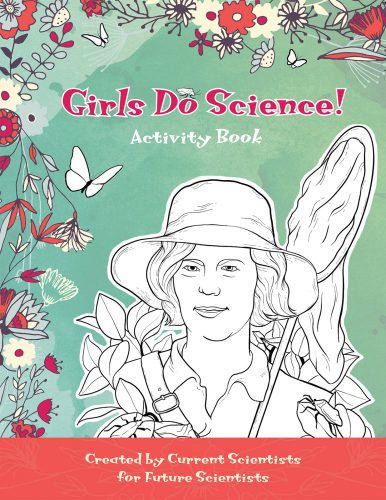
- This event has passed.
Celebrate ‘International Women and Girls in Science Day’ with hands-on activities and experiments during this FREE program open to everyone.
In 2015, the United Nations selected Feb. 11 as ‘International Women and Girls in Science Day‘ in order to further achieve gender equality and encourage more female participation in science. Join us for a day full of activities and conversation with a variety of scientists!
While the event activities are FREE, there is an admission charge for the Antarctic Dinosaurs and Butterfly Rainforest exhibits.
This event is dedicated to Museum researcher and former Allyn Curator of Lepidoptera at the McGuire Center, Jacqueline Miller in honor of her retirement in 2023.
Activities
Meet local scientists and do fun activities throughout the afternoon.
- McGuire Center for Lepidoptera & Biodiversity– Learn about DNA extraction, build insect aspirators, see live caterpillars, butterflies and moths. See drawers of Lepidoptera and other insects from the museum’s collection.
- Florida Museum Herbarium Collection and Ordway Lab of Ecosystem Conservation– Explore pollination up close with hands-on activities and crafts, connecting the public to the beauty of birds and wild flora in Florida.
- Blackburn Lab– Learn about amphibian and reptile research in the Florida Museum of Natural History specimens, 3D prints, images and a coloring activity.
- Longo Lab– Check out specimens and equipment used in the field of herpetology.
- UF Aquatic Animal Health Program– Learn about Florida marine life like right whales, sea turtles, dolphins and manatees.
- UF Thompson Earth Systems Institute– Design pins featuring environmental messaging.
- Engineering School of Sustainable Infrastructure & Environment– Learn all about ants with a live colony, preserved specimens, videos, games, activities and more.
- Ceramic Technology Lab– See how scientists reconstruct pots using shards and 2D puzzles and how they use these samples to determine the materials and tools that were used.
- Florida Museum South Florida Archaeology and Ethnography Program– Sort through bones, shells and pottery and learn about data analysis with archeological oysters.
- Scheffers Lab– Learn about microclimates and how important they are for plants and animals in tropical rainforests.
- UF Department of Anthropology– Take part in a bone chemistry laboratory and see how scientists use teeth to identify human remains.
- Alachua County Environmental Protection Department– Discover the role aquatic invertebrates have in our water with an interactive activity, specimens, coloring sheets and more.
- UF Chapter of the Society for Advancement of Chicanos/Hispanics and Native Americans in Science– Learn about the women who have made contributions to the world of science with games and activities.
- Florida Department of Agriculture and Consumer Services– Use a microscope and dissecting scope to observe different scientific materials and learn about the tools researchers use.
 Girls Do Science Online
Girls Do Science Online
Celebrate women and girls in science all year! We gathered some great resources from previous years all in one spot. Download our free activity book PDF, read about Florida Museum scientists, watch videos about science activities and more!
Girls Do Science Resources Girls Do Science PDFOrganizer
Venue
3215 Hull RoadGainesville, FL 32611
The Florida Museum may photograph or video visitors for educational and promotional purposes. Attendance to a Florida Museum event constitutes the attendee’s consent regarding the possibility of appearing in Museum marketing materials.